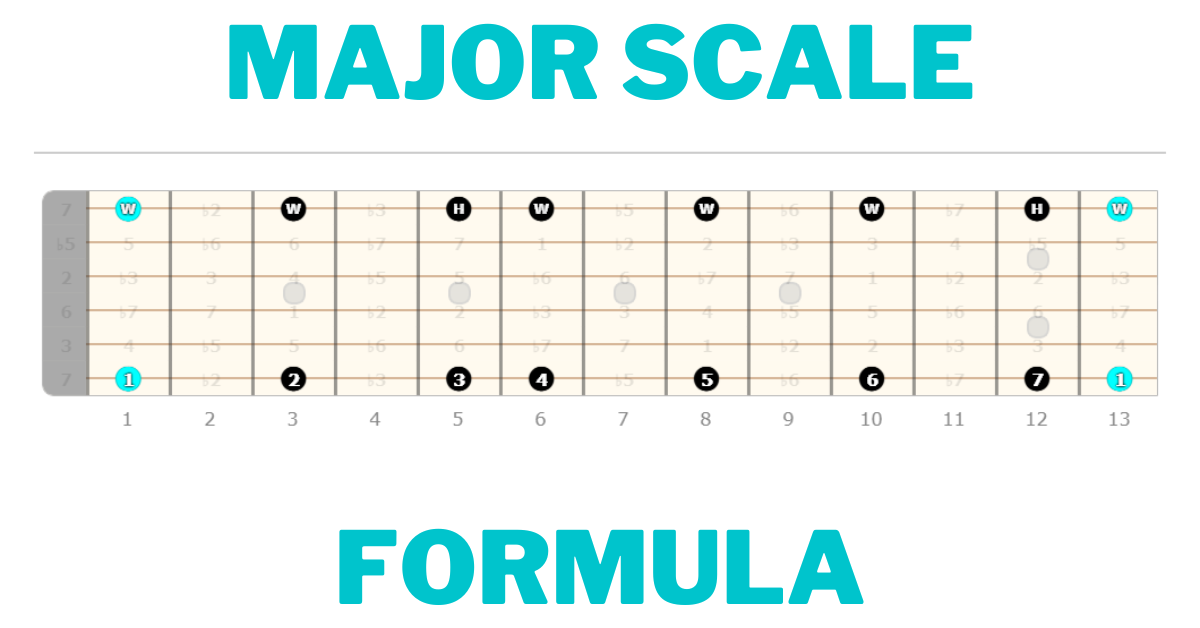
Major Scale Formula Definition (Guitar) Guitarfluence
As long as you know the major scale formula, you can start on any note or key and form a major scale. Starting on C, go up a whole step to D, a whole step to E, a half step to F, a whole step to G, a whole step to A, a whole step to B and lastly, a half step to C. My new book, Piano Scales Made Simple , will help you with your scales.

The Major Scale » Lead Guitar Lessons
Some people roll their eyes at the mention of theory and scales, but you don't have to be one of them. In this post I'm going to share some practical knowledge with you about something that will be foundational in your rhythm and lead guitar playing for years to come, major scales and the formula (pattern) to build them.

Major Scale Formula Music Theory on the Piano YouTube
Scales and Keys. Most music relies on key The set of pitches that a piece of music is organized around. A key has two components: a tonal center and some sort of scale, or set of pitches used for creating harmony and melody., a choice to use a pattern of seven notes forming a set called the major scale.The major scale is a series of 7 notes that are a subset of the 12 notes in the chromatic.

Major Scale Formula YouTube
Constructing a C Major Scale. The formula for creating a major scale is "whole, whole, half, whole, whole, whole, half.". This means if we start on c, we must go up 2 adjacent notes to get to the next note, which is d. That's the first "whole" and let's follow the whole formula through: whole: c to d. whole: d to e.

The Minor Scale » Lead Guitar Lessons
What Is The Formula For A Major Scale? Easy Breakdown 8 min read In this brief introduction, we will explore the concept of a scale and delve into the formula for a major scale - One of the most fundamental scales in Western Music. The major scale is a seven-note scale widely used in various genres of music, from classical to pop, jazz to rock.

Understanding The Major Scale Beginner Guitar Theory Lesson
5 patterns of the major and minor scales for each major and minor key. Theory behind building key chords from major and minor scales. 103 pages. Price: $9.99. A Major scale on guitar. This scale reference contains the notes, formula, structure, positions, chords, and modes for A Major.
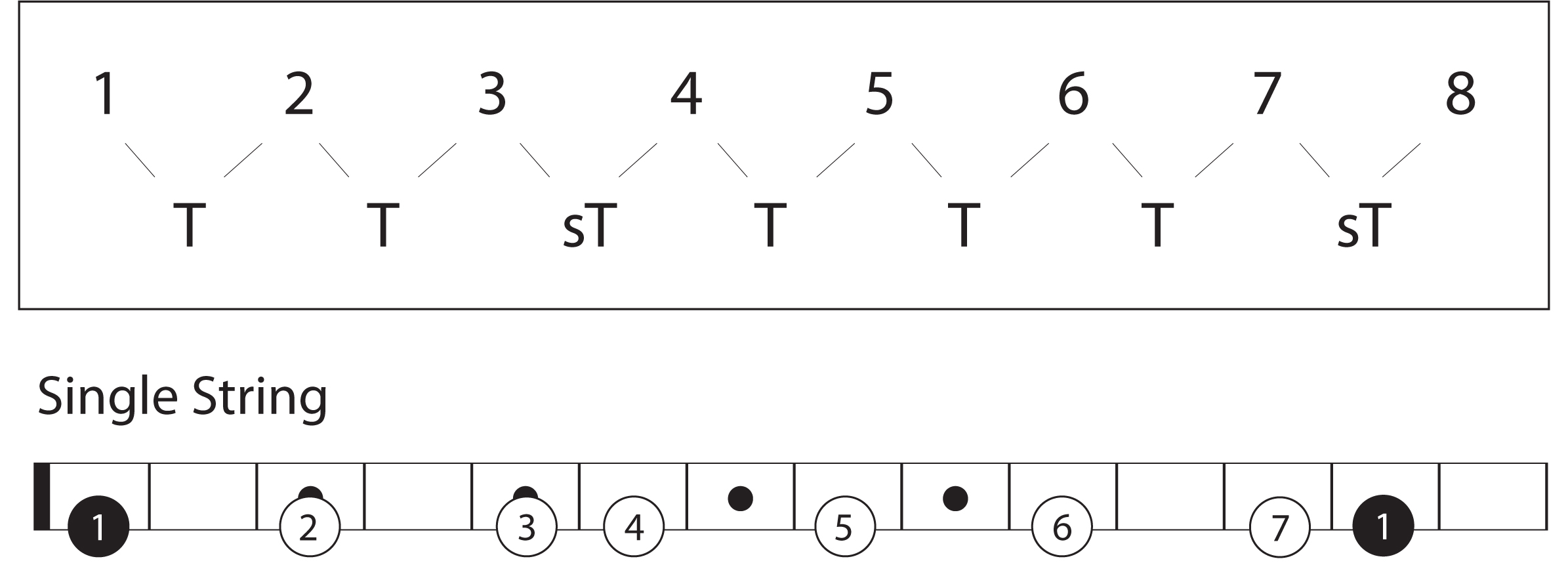
major scale formula Pickin' Lessons
Formula The major scale formula is W-W-H-W-W-W-H. This stands for whole step, whole step, half step, whole step, whole step, half step. You can for any major scale using this formula. Half steps and whole steps are the distance from one key to another. A half step is the distance from one key to the key that is closest to it.

Major Scale Formula
The secret formula for a major scale is: T-T-S-T-T-T-S T=Tone (whole-tone) S=Semi-tone (half-tone) Major scale pattern: 2 Types of major scales Major scales with flats (b) All music scales that has the term "flat ( b )" in its name is a major scale with flat.

Scale Formulas Discover Guitar Online, Learn to Play Guitar
Locrian Mode. The formula for this mode is 1, b2, b3, 4, b5, b6, and b7. The notes for G Locrian, when compared to G major, are G, Ab, Bb, C, Db, Eb, and F. This mode is considered a minor sounding scale due to the b3, or minor third. Notice this mode has the most altercations with the exception of the 1 and 4.
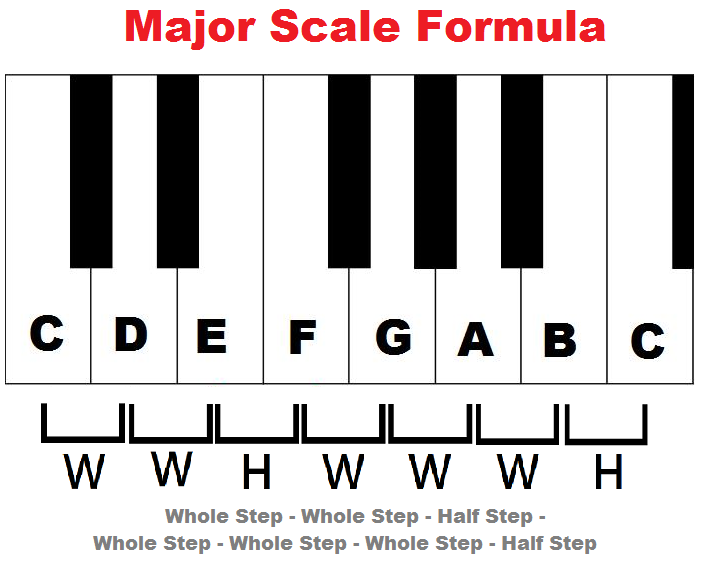
Learn major scales piano, treble clef, charts, pattern/formula, chords music theory
To make a major scale, we just have to follow a very simple formula of semitones and tones (whole steps and half steps) between each note. That formula is: T - T - S - T - T - T - S Or in whole and half steps, a major scale would be this formula: W - W - H - W - W - W - H

Piano Basics Scales, Keys & Major Scale Formula (Part 1) YouTube
The pattern of whole and half steps characteristic of a major scale The intervals from the tonic (keynote) in an upward direction to the second, to the third, to the sixth, and to the seventh scale degrees of a major scale are called major. [1] A major scale is a diatonic scale. The sequence of intervals between the notes of a major scale is:

Formula to make the Major Scale on piano. Pick a random note, apply the formula and you know
A half step from E is F. A whole step from F is G. A whole step from G is A. A whole step from A is B. A half step from B is C, back to the top. So, the C major scale ends up looking like this: Writing Major Scales in Any Key The above 'major scale formula' is all you need to write a major scale in any key.
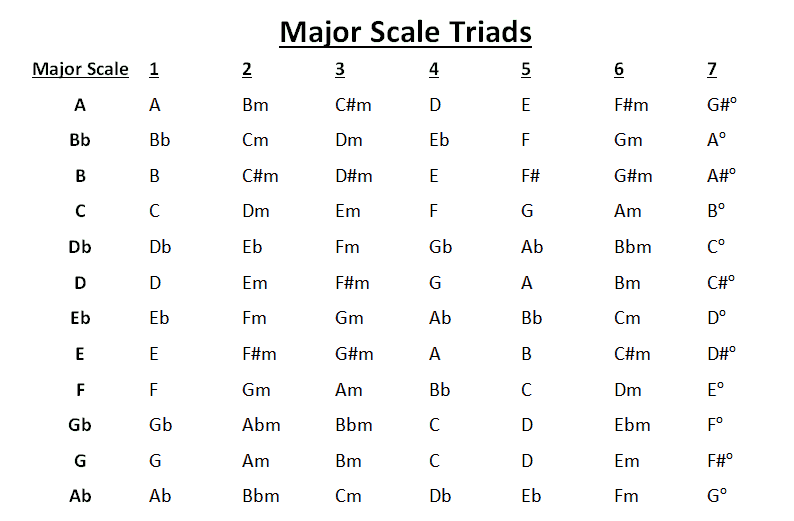
Major Scale Chords Music Theory Made Easy
Like every major scale, A major follows a certain formula of whole and half steps which is: Whole step, whole step, half step, whole step, whole step, whole step, half step. This is abbreviated to W W H W W W H. A Major Scale With Whole and Half Steps Using the British terminology of tones and semitones, this would be:
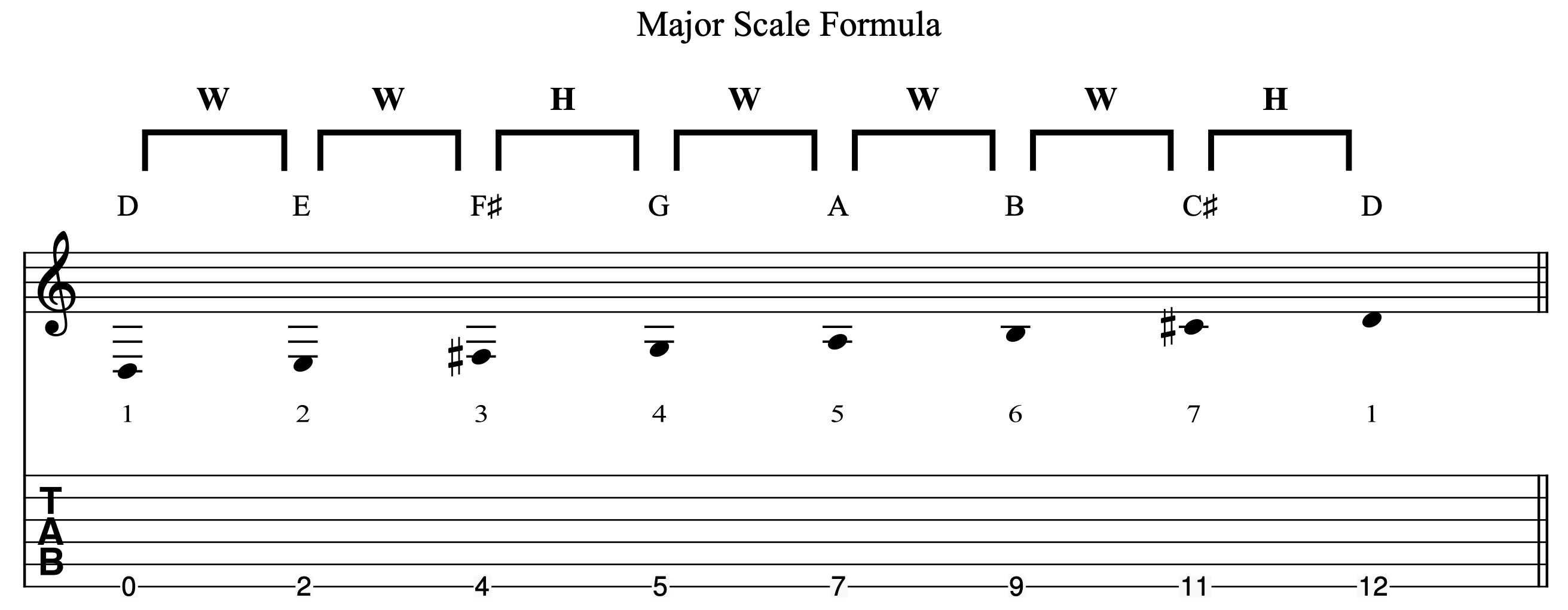
The Allimportant Major scale Open D Tuning
The Major Scale A scale is a selection of certain notes within an octave. The first scale that we will discuss is the major scale. The major scale is constructed with this formula. W's represent whole steps and h's represent half steps. Let's build a C Major Scale. Our starting note will be C. From the C, we will take a whole step to D.

The Major Scale Formula Free Guitar Lessons
For example, all major chords have a formula of 1 3 5. That means the chord C major is composed of the 1st, 3rd & 5th notes of the C major scale (C, E & G) arranged in any order, plus any optional octave doubling of those notes. The chord C minor, on the other hand, has a formula of 1, flat 3 and 5. C and G (1 & 5) are still needed, but instead.
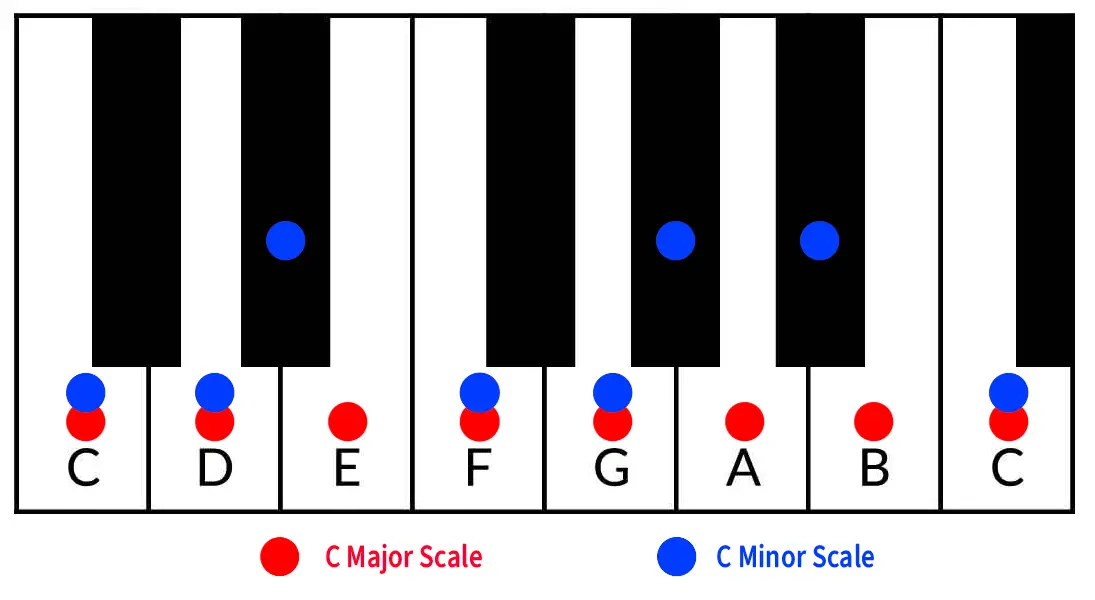
The Formula To Major & Minor Scales
The major scale is a fundamental and widely-used musical scale that consists of seven distinct notes. It is characterised by its uplifting, happy, and consonant sound, making it a go-to choice for countless musical compositions across various genres. When you think of the classic "do-re-mi-fa-so-la-ti-do" pattern, you're essentially.